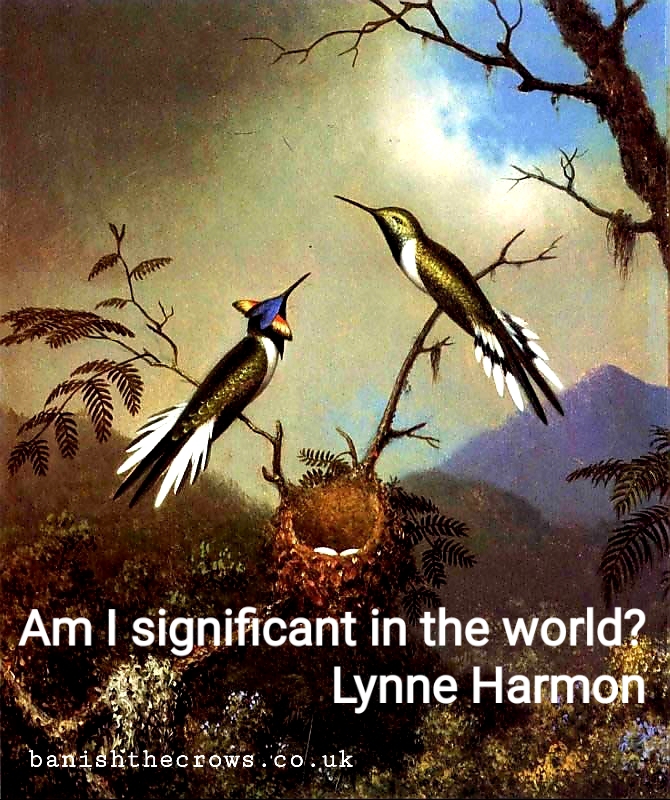
05 Apr Am I significant in the world? Lynne Harmon, Associate Counsellor Psychotherapist.
Our current situation is rapidly giving us the opportunity to reflect on and possibly reframe our thinking.
For many people, the challenge to find significance when they have not had a secure attachment as a child is huge. The culture we live in within this century may message us to say money, status, intellectual prowess and influence get you noticed. This leaves the low paid, the less academic and those who see themselves as having no influence potentially feeling marginalised.
However, it is the low paid, the practical carers, nurses and many others who do not consider themselves to be valued who are the most significant people managing COVID 19 and preventing death. The power of their dedication, skill, care, compassion and commitment are what we will want if we ourselves find we have to be admitted to hospital or put on a ventilator. Of course there are many strategic thinkers, those whose intellect produces ideas to support staff and those who contribute finance to support too. The main point is: WE ARE ALL SIGNIFICANT we all have things to offer each other.
Someone with ME or any other isolating illness, who has learned how to be alone for long periods and with limitations, can offer many ideas to those going stir crazy in their homes. They did not think they offered anything, but at the moment, people can turn to them for ideas of how to manage being alone. They are so significant. If you know someone like that talk to them, send them a message of thanks. You might think of others who may have been seen as lacking value or indeed yourself and begin to see your significance.
This leads me to the paradox of suffering.
So those who know what it is to be alone, to be helpless and physically weak, who know the neglect of friends and the lack of social contact, who have to rely on carers and ask for support have suffered. Yet in the midst of their suffering, amazing skills can develop, knowledge of communicating and interacting can increase and care and compassion for others who suffer can deepen. It has been my privilege to work with many people who offer much to the world because they have suffered and turned their suffering to positive ways of being in the world. Carl Jung spoke about our ‘shadow’. The parts of us that stop us seeing our beauty, that sabotages our thinking and behaviours. Our society can cast a shadow over people I mention here so we do not see beauty. May the future, as a result of this, enable us to value what each person offers and to look beyond money, status, academic success and power and see the far wider value we have as each individual, so we all actually know and are told of our significance to our world.



jeremy
Posted at 23:08h, 07 AprilI really liked your blog Lynne. It is a useful reminder of the potentiality of all of us, from all parts of society, social and professional statuses and how we all make our individual contribution for a better society and aspirationally, a better world. Very recently I was pleased to see praise for the broader spectrum of third and independent sector providers, as well as other public sector workers beyond those employed by our NHS. The NHS and its workers is perhaps the more obvious and immediate area for praise given its profile in treating the public during the current crisis and in critical, emergency situations, but the picture is of course much more expansive, as you rightly point in what you say. And people who hold none of these roles or are not employed by any organisation but who do their level best to show compassion and inordinate kindness to their fellow human beings. Incidentally, I welcomed your reflections on Jung’s ‘shadow and the parallel that you draw, usefully, from a societal perspective.